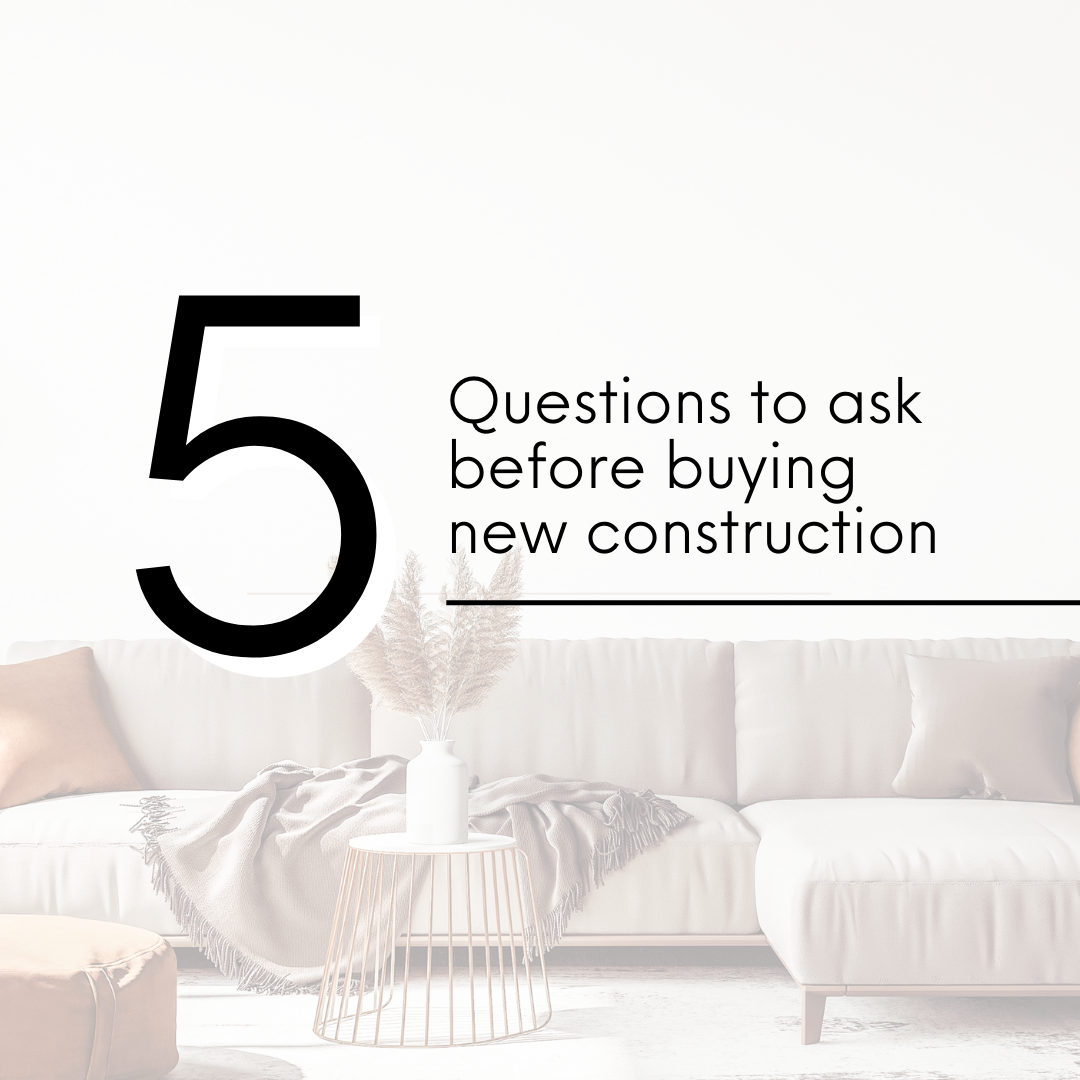
Buying a new home can be one of the most exciting things in your life! But it also comes with a lot of questions. Here are 5 questions to ask before you commit.
#1. Is this a brand new development? If so, how long do you plan on living there?
Choosing a new development has a lot of perks. But, knowing how long you plan on living there may effect your decision. Is this going to be a forever home or are you just planning to stay for a few years and then move on? If you have a really long commute, how long will you be willing to do it? If you have school children, is there a possibility that the school will be rezoned? Do you know of any large corporations or major attractions that are going to moving into the area over the next few years? How will traffic patterns look in a few years? How far away are the emergency services? These are just some of the questions you should ask yourself and your realtor before deciding to move into a newly developed area.
Even if you are not choosing a new development one major perk of new construction is that the entire home is brand new. New home owners do not have to worry about major repair and replacement costs. How long you plan to live in a home can help you determine and budget for future repairs far down the line.
#2 Can I choose my own finishes?
Many buyers assume that they can pick their own finishes and that those finishes are included in the price. This assumption can be very costly. Make sure you understand your contract before you go to the design center.
Knowing what kind of build you are doing is important too. For example doing a “dirt build” means the home has not been started yet and that you have more control and input into the cabinetry, carpets, appliances, optional rooms, extended patios etc.etc. Some of these options are included in the price, while others are considered upgrades.
An inventory home is a home that has already been started and has the interior design and fixtures already planned out. Usually there is very limited input from the buyer or none at all. “What you see is what you get”. These types of builds are often cheaper than dirt builds and have a faster move-in date.
#3 Will the home be built to last?
Reputation is important when choosing a builder. How well do you know the builder? Is it an National Brand Builder or is an independent local builder? How long have they been building homes? Do they have good reviews? What are they known for? ie, high quality finishes, workmanship, energy efficient homes, do they offer extended warranties?
You will want to do your research on your builder. Read reviews, speak to friends or family that have used that builder before. Rely on your Realtors input. Realtors spend a lot of time touring new construction sites and new developments. They also network with builders and other realtors . They will be able to give you valuable input on the builder and their quality of work.
#4 LOCATION LOCATION LOCATION
Where you want to live can effect the type and style of properties that can be built. Some areas will have different building and zoning requirements or restrictions. Different locations can also drastically effect the price as well. Working with a realtor will help you locate your desired property type in location you want, in the price range you want.
#5 Do you like the floor plan?
Open concept is all the rage right now, but it is not for everyone. Try and find a builder that can build you the type of home that works best for you. Working with a Realtor can help with this. They will will have a long list of builders for you to choose from.
If you considering settling for something that isn’t exactly what you want, consider what it would take in terms of time and money to change or modify the home in the future. Then ask yourself ..”Is it worth it or should I keep looking?”
These are just a few things you should consider when thinking about a new construction home. In short…. Buying a home regardless of whether it’s an existing home or new construction home is a major life altering experience. The more prepared you are (not just financially) the easier the process will be.

 Facebook
Facebook
 X
X
 Pinterest
Pinterest
 Copy Link
Copy Link

